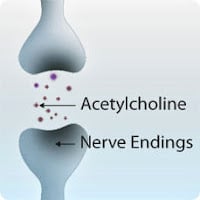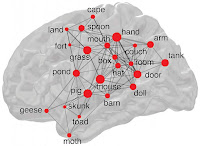A daily cup of tea could help you to enjoy better health late in life — however if you’re not a tea drinker, there are other things you can add to your diet.
Researchers say the key is flavonoids, which are naturally occurring substances found in many common foods and beverages such as black and green tea, apples, nuts, citrus fruit, berries and more.
They have long been known to have many health benefits — however new Edith Cowan University (ECU) research shows they may be even better for us than previously thought.
The biology
The Heart Foundation supported a study of 881 elderly women (median age of 80), which found they were far less likely to have extensive build-up of abdominal aortic calcification (AAC) if they consumed a high level of flavonoids in their diet.
AAC is the calcification of the abdominal aorta — the largest artery in the body which supplies oxygenated blood from the heart to the abdominal organs and lower limbs — and is a predictor of cardiovascular risk such as heart attack and stroke.
It has also been found to be a reliable predictor for late-life dementia.
Some foods better than others
ECU Nutrition and Health Innovation Research Institute researcher and study lead Ben Parmenter said while there were many dietary sources of flavonoids, some had particularly high amounts.
“In most populations, a small group of foods and beverages — uniquely high in flavonoids — contribute the bulk of total dietary flavonoid intake,” he said.
“The main contributors are usually black or green tea, blueberries, strawberries, oranges, red wine, apples, raisins/grapes and dark chocolate.”
The flavonoid family
There are many different types of flavonoids, such as flavan-3-ols and flavonols, which the study indicated appear to also have a relationship with AAC.
Study participants who had a higher intake of total flavonoids, flavan-3-ols and flavonols were 36-39 per cent less likely to have extensive AAC.
Black tea was the study cohort’s main source of total flavonoids and was also associated with significantly lower odds of extensive AAC.
Compared with respondents who didn’t drink tea, participants who had two-to-six cups per day had 16-42 per cent less chance of having extensive AAC.
However, some other dietary sources of flavonoids such as fruit juice, red wine and chocolate, did not show a significant beneficial association with AAC.
Not just tea
Though black tea was the main source of flavonoids in the study — likely due to the age of the participants — Parmenter said people could still benefit from flavonoids without putting the kettle on.
“Out of the women who don’t drink black tea, higher total non-tea flavonoid intake also appears to protect against extensive calcification of the arteries,” he said.
“This implies flavonoids from sources other than black tea may be protective against AAC when tea is not consumed.”
Parmenter said this was important as it allows non-tea drinkers to still benefit from flavonoids in their diet.
Easy to do
“In other populations or groups of people, such as young men or people from other countries, black tea might not be the main source of flavonoids,” he said.
“AAC is a major predictor of vascular disease events, and this study shows intake of flavonoids, that could protect against AAC, are easily achievable in most people’s diets.”
‘Higher habitual dietary flavonoid intake associates with less extensive abdominal aortic calcification in a cohort of older women’ was published in Arteriosclerosis, Thrombosis, and Vascular Biology.
SOURCE:
- Edith Cowan University, Australia
REFERENCE:
- Parmenter BH, Bondonno CP, Murray K, Schousboe JT, Croft K, Prince RL, Hodgson JM, Bondonno NP, Lewis JR. Higher Habitual Dietary Flavonoid Intake Associates With Less Extensive Abdominal Aortic Calcification in a Cohort of Older Women. Arteriosclerosis, Thrombosis, and Vascular Biology. 3 Nov 2022; 42:1482-1494. DOI: 10.1161/ATVBAHA. 122.318408











